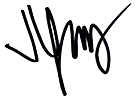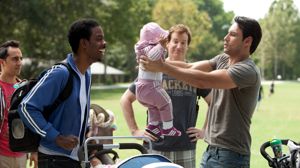I have no doubt that you were qualified to write the screen adaptation of What to Expect When You're Expecting. You've twice experienced the miracle of childbirth and surely possess the sort of arcane knowledge that the best-selling pregnancy guide, first published in 1984, has provided to a generation of expectant moms. I'll even concede that the task assigned to you and co-writer Shauna Cross was near-impossible: adapt an instructional non-fiction health manual into a Hollywood film big enough to accommodate any number of ascending B-list and declining A-list stars.
So, what happened?
The approach you took was smart: create a sort of Altman-esque tapestry of braided narratives, each focused on a unique element of the pregnancy experience--like Nashville, but marching towards the delivery room instead of a political rally. Sadly, what we're left with is more New Year's Eve than Short Cuts.
San Francisco is the setting. Elizabeth Banks, Jennifer Lopez, Cameron Diaz, and Anna Kendrick are the soon-to-be moms. The guy from Glee and the Air Marshal from Bridesmaids are the patently uninteresting husbands. The director is Kirk Jones, and he handles every scene with the same pop-music gentility, which sometimes works (as during the Ethiopian adoption ceremony) and often doesn't (as during the cruelly interminable lead-up to a miscarriage diagnosis). The timing and telemetry is lifted directly from every romantic comedy released over the last twenty years, and the result is something that seems beyond cliche. It's like one of those movie scene mash-ups you might find on YouTube. But less clever.
You know, it's not really fair of me to bring up Robert Altman. I was just trying to make myself sound smart. I can't blame you for not achieving what you didn't set out to do. Maybe you weren't writing this screenplay as an exercise in formalist storytelling. Maybe you were writing it for the moms. Maybe you were trying to tell their story: the secret story of birth, which, in the movies, is so often played for laughs, reduced to a few minutes of sexualized huffing and puffing and cursing, followed by a tearful cuddle with an eerily beatific, gleaming-clean, six month-old stunt-baby.
But I saw this in a theater full of moms, and there was never that big moment of shared recognition, that cathartic uniting of the audience behind an unspoken truth suddenly, shockingly, candidly exposed. In a film that should have been full of such moments, there are none. Even The Avengers was able to unite the assembled geeks and nerds and fanboys in spontaneous cheers at the sight of the Helicarrier, Avengers Tower, Thanos: all that secret folklore made wonderfully public. Surely childbirth has a more beautiful, vital mythology than the Marvel Universe?
My issue, Heather, is that you took a book that became iconic for its gruesome, pragmatic, uncompromising honesty and turned it into a movie that has nothing remotely honest to say.
Like I said earlier, as a mother of two you were no doubt qualified to write this screenplay. But, as a mother of two, how do you feel about promoting these bland platitudes about pregnancy?
Sincerely,

Jared







